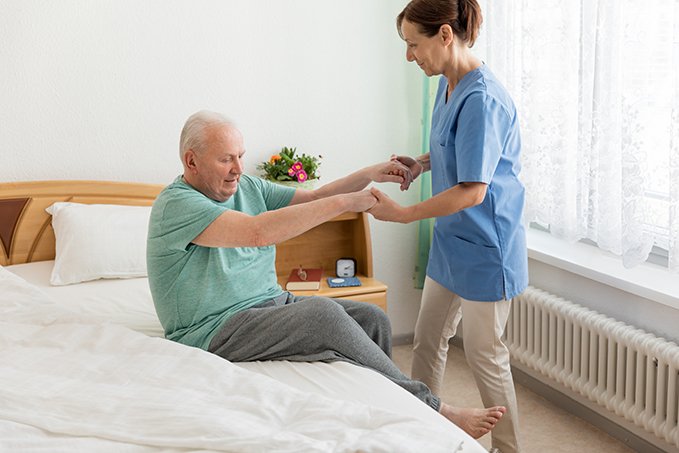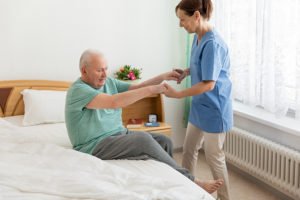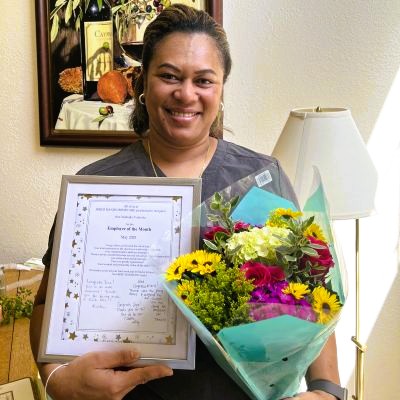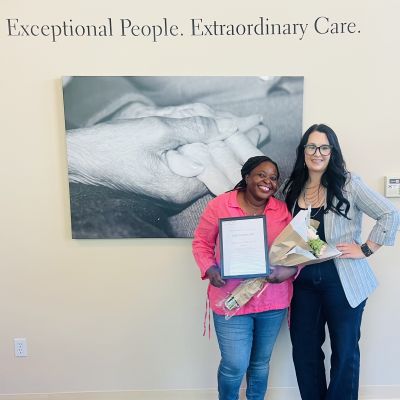Relieving the Pressure of Bed Sores

 Impacting as many as one out of every ten older adults, and even more prevalent in those who smoke, suffer from chronic conditions such as diabetes, or whose skin is more fragile, bed sores (also known as pressure sores or pressure injuries) are not just extremely painful – they can quickly progress to infections that can spread to the bloodstream and even become life-threatening.
Impacting as many as one out of every ten older adults, and even more prevalent in those who smoke, suffer from chronic conditions such as diabetes, or whose skin is more fragile, bed sores (also known as pressure sores or pressure injuries) are not just extremely painful – they can quickly progress to infections that can spread to the bloodstream and even become life-threatening.
For those with limited mobility or who are bed- or wheelchair-bound, and those who care for them, the battle against bed sores can seem endless. Resulting from a lack of blood flow when remaining in one position for too long, it’s imperative for those caring for a senior loved one to educate themselves about pressure sore prevention. Try some of these tips to help protect your loved one’s vulnerable skin from these dangerous sores:
- Frequent Position Changes
- Hourly if wheelchair-bound, every two hours if bedbound
- Use lifting devices when possible to avoid friction during repositioning
- Support
- Use specialized cushions and pads:
- Between knees and ankles
- Under calves to protect heels
- To lie at an angle, protecting hips
- Use specialized cushions and pads:
- Skin Care
- Use mild soap and warm (not hot) water and apply lotion
- For excessively moist skin, use talcum powder
- Massage areas prone to pressure sores to increase circulation
- Healthy Nutrition and Activity Choices
- Check with your loved one’s doctor for dietary and supplement recommendations for optimum skin health
- Maintain good hydration
- Stop smoking
- Daily exercise (as appropriate and per doctor’s recommendations)
If, in spite of taking these preventative measures, your loved one develops a bed sore, it will progress through the following four stages:
- Stage 1: A blue, purple or reddish bruise-like patch on the skin can be noticed, which may be warmer than the surrounding skin and cause sensations of itching or burning.
- Stage 2: An open sore appears on the bruise, resembling a blister or abrasion. Discoloration and pain accompany this stage.
- Stage 3: As the sore worsens, the surrounding skin darkens and the area is deepened.
- Stage 4: At this stage, damage occurs to the bone, muscle and/or joints, and osteomyelitis (a serious bone infection) or even sepsis (a life-threatening blood infection) can occur.
Be sure to contact your loved one’s doctor immediately if a pressure sore is noticed. Hired Hands Homecare, the hospice care Pleasanton, CA experts, can also help by inspecting skin daily to identify vulnerable areas of the skin and detect the early signs of bed sores, as well as assist with ambulation, turning and transferring to reduce the risk of developing sores. We’re just a phone call away. Contact us today at (866) 940-4343.








Leave a Reply